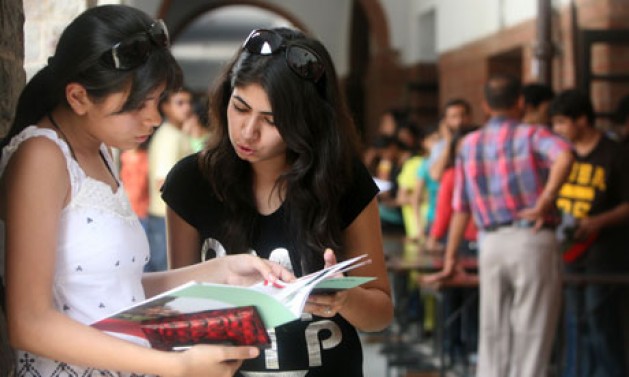E xactly the same title had the article of the former General Secretary of the Association of Indian Universities, honorary rector of the University. Dr. DY Patil – Krishnapratapa B. Povara in the next 81-th issue of the magazine “International Higher Education.”
xactly the same title had the article of the former General Secretary of the Association of Indian Universities, honorary rector of the University. Dr. DY Patil – Krishnapratapa B. Povara in the next 81-th issue of the magazine “International Higher Education.”
The article analyzes the support of private initiatives in India and the role of this type of higher education sector in the country, especially of private universities and the major challenges they face in their work.
Modern Indian higher education system consists of five types of high schools (schools authorized to grant a degree not lower than bachelor’s) colleges of national importance, the central universities, the regional public universities regional private universities, deemed universities. They differ by the type of device, sources of funding, operation mechanism, in the part the distribution of emphasis between research and teaching. The first three types of universities are public, the next two are private.
On the expansion of private education is that it is a non-profit sphere of activity under the law of India. Universities are entitled to a “reasonable size” profit by charging fees for training or other kinds of service; only the size of this board is not defined. The situation is complicated with a necessary condition for the reinvestment of revenues in the development of the university. Such tax legislation is rather disincentive to the development of higher education in India. In addition, the national education system, even in their daily lives, is strictly regulated by various government agencies.
The main question is whether it is necessary to expand the private sector? And there is no consensus. On the one hand, there is a public good in the form of increased access to education, and on the other – new challenges of inequality and corruption.
In most cases, private schools offer education in such areas as engineering, medical business, and other medical specialties, management and pedagogy. Typically, private universities are well-equipped, staffed by experienced highly qualified teachers working in advanced research. According to the National Accreditation Board in two-thirds of private “conditionally universities’ quality of education is higher than in most of the state.
But the main problem is in some of the regional activities of private universities, the quality of education which is more doubtful. They give the minimum knowledge, while the number of graduate students enrolled is huge, attracting as supervisors of external experts.
The situation is also complicated with some weaknesses in the private university management that contribute to the spread of corruption schemes in the recruitment of students, and this is so despite the high fees for educational services. Highly estimated private universities simply do not accept young people from middle-income families.
Thus, there is a situation when private schools solve the education access problems only for the rich part of the population. For those who have no money, they are more identified with the social evil, aggravating social and economic inequality.
Information source:
http://ihe.hse.ru/data/2015/07/14/1085710748/WHE_08_view.pdf#page=16

